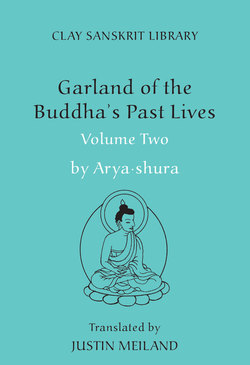Читать книгу Garland of the Buddha's Past Lives (Volume 2) - Aryashura - Страница 25
На сайте Литреса книга снята с продажи.
ОглавлениеThe combined scent of the bathing ointments,
garlands, liquor and perfume of the women
was dispelled by the fragrance of the fruit,
delightful to smell and swelling with virtues. (27.9 [2])
The king develops such a strong greed for the fruit that he searches for the tree and attacks the monkeys living in it.19 This conflict between animals and humans (and between forest and society) is only resolved when the Bodhi·sattva saves his herd of monkeys by sacrificing his life to bring about their escape. The king is so impressed that he ceases his attack and the story concludes with the dying monkey instructing him on virtue. A similar resolution occurs in nearly all the stories in which animals or ascetics come into contact with ordinary human society:20 after an initial conflict, the virtuous conduct of the animal or ascetic wins through and the king (or another human character) is instructed on moral conduct or on the benefits of the renunciate path.
In the previous volume, we already had cause to mention the importance of the theme of kingship in the “Garland of the Buddha’s Past Lives.” A similar emphasis is shown in the present volume, in which twelve of the fourteen stories either depict some form of instruction of kings or explore the notion of ideal kingship.21 As is highlighted by “The Birth-Story of Suta·soma’ (31), a central duty of the ideal king (or in this story prince) is to dedicate himself to virtue and to convert the wicked to become good. Taking the Bodhi·sattva’s self-sacrificial actions as a paradigm, as portrayed for example in ‘The Birth-Story of the Great Monkey’ (27), the righteous king should be a model of moral conduct for his _____________
